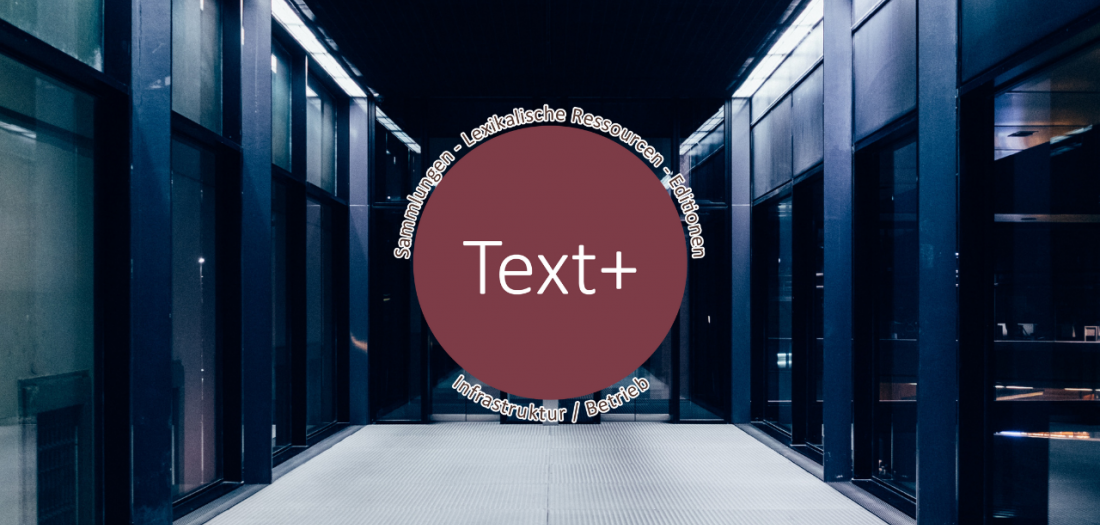Exploring linguistic heritage in the digital age
TCDH is part of the nationwide initiative text+.
09.07.2021 | General, Press Releases

Server cabinet
At its meeting on July 2, 2021, the “Joint Science Conference” of the German federal and state governments decided to fund the "Text+" network as part of the “National Research Data Infrastructure” (NFDI). The “Text+” network already includes more than 30 partners from university and non-university research institutions and memory institutions. The applicant “Leibniz Institute for the German Language Mannheim” is coordinating the project together with the four co-applicant institutions: the “Berlin-Brandenburg Academy of Sciences and Humanities”, the “German National Library Frankfurt/Leipzig”, the “Göttingen State and University Library of Lower Saxony”, and the “North Rhine-Westphalian Academy of Sciences, Humanities and the Arts”.
“We are pleased that we have succeeded in uniting a broad spectrum of institutions in the field of language, writing, and text in a single network. The network will be continuously expanded to include research data of comprehensive subject breadth. This enables research on and with very different materials such as manuscripts, dictionaries, editions, and even comprehensive computer-aided language resources of the written and spoken language,” says the Scientific Director of IDS, Prof. Dr. Henning Lobin.
“Text+” is building a research data infrastructure focused on language, written and textual data. The network will initially focus on digital collections, lexical resources and scholarly text editions. Such digital data are of great importance for all language- and text-based disciplines, especially for linguistics, literature and cultural studies, philosophy, classical philologies and anthropology. Since text and language continue to play a central role in communication in the sciences, all other disciplines can benefit from “Text+”, especially the social, economic, political, and historical sciences.
The NFDI is intended to systematically develop, secure, make accessible and link research-relevant data resources in the form of a science-driven process. In total, the federal and state governments intend to fund up to 30 consortia across all scientific disciplines. Up to 85 million euros per year are available for this purpose.
The “Trier Center for Digital Humanities” (TCDH) at the University of Trier is contributing its many years of expertise to the Text+ consortium as a participating institution in two areas. First, in the area of digital lexical resources: Here we are developing solutions for the further networking of digitally available or emerging dictionaries and reference works, especially with regard to the linguistic-historical, dialectal, and literary vocabulary development dictionaries of New High German. Secondly, in the area of collections: Here our work will focus on the principle of "derived text formats" for the use and publication of copyrighted textual materials.
The "Competence Center - Trier Center for Digital Humanities" (TCDH) was founded in 1998 and is today a central research institution of the University of Trier. With forward-looking and model solutions in the fields of digital lexicography and digital edition, the TCDH has made a name for itself in the Digital Humanities. Today, the center is divided into three research areas: Digital Edition and Lexicography, Software Systems and Research Infrastructures, and Digital Literary and Cultural Studies. TCDH develops and implements projects at the interface of the humanities and computer science and is networked regionally, nationally and internationally through numerous collaborations. The center's flagship project is the Wörterbuchnetz (Dictionary Network), which can be found at https://woerterbuchnetz.de since 2007.
Language, writing, and text are foundations of human culture, knowledge, and communication. These materials span several thousand years of cultural heritage, often collected and enriched over many years by researchers in the humanities and related disciplines. There are major differences among the sources in terms of their indexing and availability: while many of these materials and research data are already available in digital form, other sources are not yet available in machine-readable or even digitized form. This availability gap affects virtually all areas of linguistic, written, and textual data, but especially the small and endangered languages and literatures. Thus, high-quality digitization, curation of such data, and standardization of formats for digitized data remain major challenges. These challenges are being addressed by “Text+”.
Contact person for “Text+”:
Prof. Dr. Erhard Hinrichs
speaker “Text+”
Leibniz-Institut für Deutsche Sprache
R 5, 6-13
68161 Mannheim
Tel: +49 7071 29 75446
hinrichs(at)ids-mannheim.de
Twitter: @Textplus_NFDI
Contact person for “Text+” at Trier Center for Digital Humanities:
Link: Text+ - Sprach- und textbasierte Forschungsdateninfrastruktur

